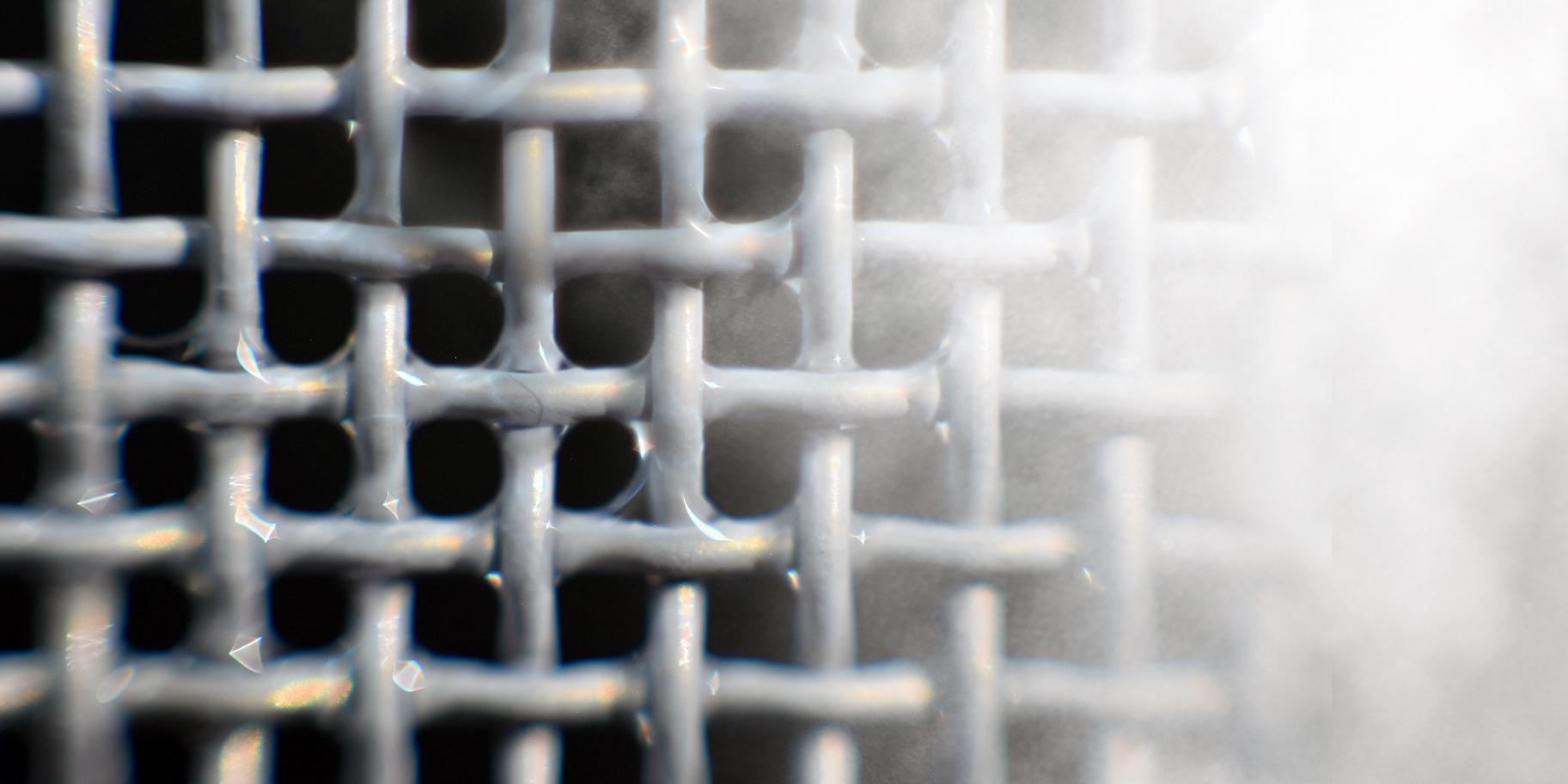
Researchers from the Swiss Federal Institute of Technology in Zurich (ETH) have developed a method to produce clean drinking water on the basis of condensed fog, further details of which can be found in a press release. To achieve this, the researchers use a close-mesh lattice of metal wire coated with a mixture of polymers and titanium dioxide.
The polymers are selected in such a way that the mesh can optimally collect the water droplets, which then quickly drain into a container. The titanium oxide acts as a chemical catalyst to break down organic pollutants contained in the water molecules. “Our system not only harvests fog but also treats the harvested water, meaning it can be used in areas with atmospheric pollution, such as densely populated urban centres”, explains Ritwick Ghosh, a scientist at the Max Planck Institute for Polymer Research in Mainz, in the press release. He carried out this research project during an extended guest stay at ETH Zurich, when he was part of the group headed up by Thomas Schutzius.
The titanium oxide must be regularly irradiated with UV light in order to regenerate, which takes advantage of the oxide’s photocatalytic memory. As a result, just 30 minutes of sunlight is enough to keep the coating activated for 24 hours. In addition, no additional energy is required for this process.
The researchers tested the system in lab settings and as part of small pilot plants. Ultimately, they were able to condense 8 percent of an artificially created, polluted fog and eliminate 94 percent of the organic pollutants it contained, such as diesel droplets or bisphenol A. In addition to obtaining drinking water, the technology can also be used in power plants to recover water from cooling towers. A great deal of fresh water is required to cool power plants, Schutzius explains, adding that: “It would make sense to capture some of this water before it escapes and ensure that it is pure in case you want to return it back to the environment”. ce/ww
Related news
Meet with an expansion expert
Our services are free of charge and include:
- Introduction to key contacts in industry, academia, and government
- Advice on regulatory framework, taxes, labor, market, and setting up a company
- Custom-made fact-finding visits, including office and co-working space